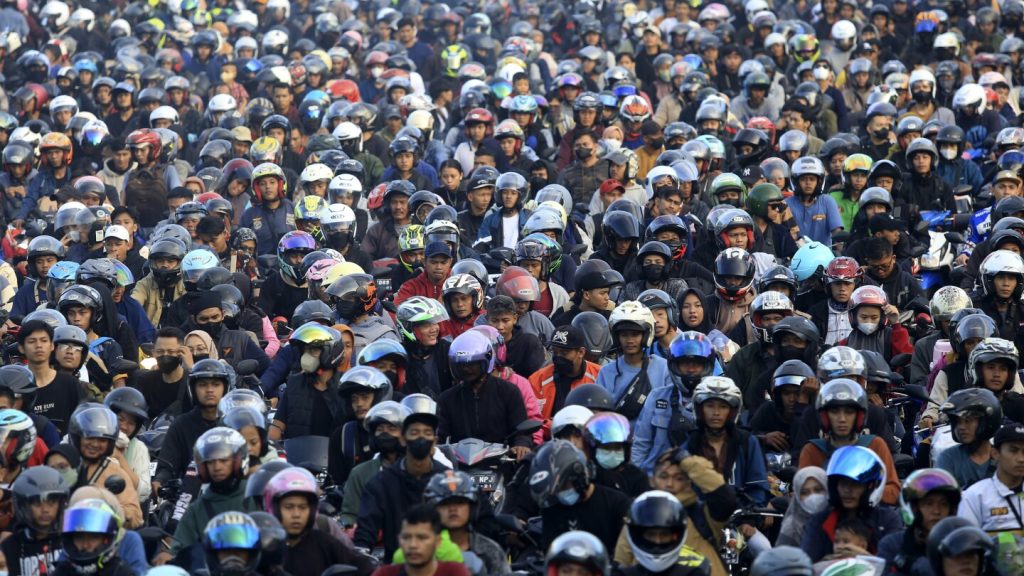As the Eid al-Fitr festival approaches, millions of Indonesians are embarking on a mass exodus from urban centers to rural hometowns to celebrate with their families. The Transportation Ministry is anticipating the largest movement of people in Indonesia’s history, with an estimated 193 million travelers expected to make the journey home. This represents nearly 72% of the population, a significant increase from last year’s numbers. The tradition of “mudik,” as it is known, is a well-established custom in Indonesia, where people return to their ancestral villages to mark the end of the fasting month of Ramadan.
In Jakarta, the capital city, bus and train stations have been overflowing with thousands of people eager to begin their journey home. More than 1.1 million individuals are projected to leave the greater Jakarta area to head to their hometowns. The scenes at transportation hubs across the country depict a bustling and chaotic atmosphere as people eagerly make their way to celebrate the festive occasion with loved ones. The sight of long queues and crowded terminals is indicative of the sheer scale of the exodus taking place.
Motorists are queuing up at ferry ports to cross over to islands like Sumatra and Bali, where they will continue their journey to their respective hometowns. The mass migration of people highlights the importance of family and tradition in Indonesian culture, as individuals prioritize spending time with their loved ones during this special time of year. Whether traveling by bus, train, or boat, Indonesians are determined to make the journey home in time for the Eid al-Fitr celebrations.
Efforts have been made to facilitate the movement of travelers, with initiatives like free bus trips organized by the Indonesian National Police to help people reach their hometowns. Such support from authorities aims to ensure a smooth and efficient travel experience for individuals making their way home for the holidays. Despite the logistical challenges posed by such a massive migration, Indonesians are resilient and determined to reach their destinations in time for the festive celebrations.
As people board boats and trains, waiting patiently for their departure, the sense of anticipation and excitement is palpable. The atmosphere is one of camaraderie and unity, as Indonesians come together to embark on this collective journey back to their roots. The Eid al-Fitr holiday holds deep significance for Muslims around the world, and in Indonesia, it is a time for reflection, gratitude, and connection with family and community. The mass movement of people during this time underscores the importance of maintaining traditions and fostering a sense of togetherness during special occasions.
Despite the challenges posed by the sheer volume of travelers, Indonesians remain undeterred in their determination to make the journey home for Eid al-Fitr. The spirit of unity and solidarity prevails as individuals come together to celebrate this joyous occasion with their loved ones. As the country witnesses this spectacular display of familial bonds and cultural traditions, the significance of Eid al-Fitr shines through, reminding people of the values of love, compassion, and togetherness that define this festive season.


